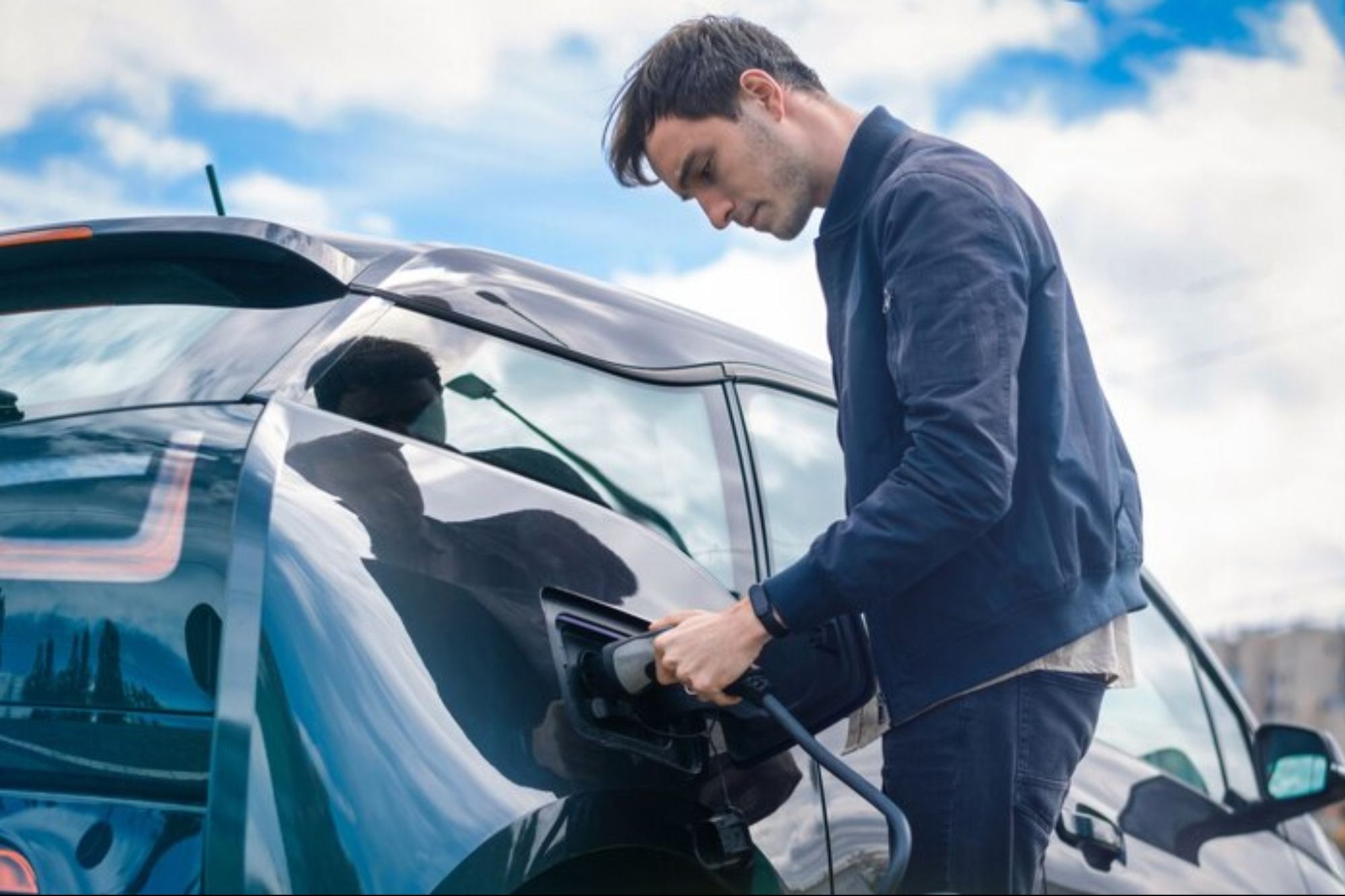Hybrid Shift, Poll and Incentive Cut Led To EV Sales Dip In May Sector experts suggest that the sharp decline this May could be due to a combination of factors such as changes in government policies and customer interest shifting towards hybrids as well as the general elections.
Opinions expressed by Entrepreneur contributors are their own.
You're reading Entrepreneur India, an international franchise of Entrepreneur Media.

There has been a 22.3 per cent decline in electric vehicle sales during May 2024 as compared to the same period of last year. According to data from the Vahan portal, total EV sales amounted to 123,107 units, a fall from 158,459 units in May 2023, which also saw peak sales in the calendar year.
In April, 113,092 units were sold.
During May, out of the total 123,107 units sold, two-wheelers accounted for about 51.7 per cent, three-wheelers comprised roughly 42.5 per cent, passenger cars made up around 5.3 per cent, and buses represented 0.2 per cent.
The remaining vehicles, including omni, agricultural vehicles, goods carriers, and others, constituted less than 0.4 per cent of total sales.
Sector experts suggest that the sharp decline this May could be due to a combination of factors such as changes in government policies and customer interest shifting towards hybrids as well as the general elections.
Jayapradeep Vasudevan, CBO, Raptee said that due to the announcement of FAME 2 closure by 31st March'24, the E2W sales clocked highest ever volumes of 1,36,020 with a sequential growth of 66% from the previous month Feb'24 leading to a drop of 53 per cent in the subsequent two months, and we can expect the E2W industry to gather momentum with new products being launched, festival season and other positive factors in the economy.
"This drop of 37 per cent in May'24 with respect to May'23 is more of a numerical outcome of the FAME policy changes in May'23 and Mar'24 and the trend will gain momentum in the months to come," Vasudevan added.
The drop in sales could also attributed to general elections and change in policy. According to Siddharth Kabra, founder and CEO, VoltUp, the market has been notably impacted across various segments, from E-rickshaws and electric three-wheelers to electric four-wheelers and buses.
"Recent declines in electric vehicle sales can be attributed to a confluence of factors, including the reduction of subsidies, anticipation of the FAME 3 policy, changes in government policies, shifting customer preferences towards hybrids, and the impact of the general elections," he said.
Echoing the same, Nimish Trivedi, Co-Founder & CEO, Evera said that halt of FAME II incentives has significantly affected EV affordability, compounded by a shift in consumer interest towards hybrids.
"The upcoming general elections have delayed purchase decisions in fleet and business sectors, as manufacturers and consumers await a new government before making investments," he said.
Anticipation surrounding upcoming model releases and uncertainties regarding government policies and incentives also play pivotal roles in shaping consumer confidence and decision-making dynamics within the EV market, with discussions around potential subsidy changes has prompted a cautious approach among prospective buyers.
"Amidst the backdrop of continued industry growth, recent data points to a concerning downturn in EV sales, prompting a nuanced examination of underlying factors. This decline can be attributed to a multifaceted interplay of elements, notably fluctuating governmental incentives and regulatory frameworks, which have injected uncertainty into consumer confidence and influenced purchasing behaviour," Rohit Vadera, CEO, PURE EV said.
Meanwhile, Pratekk Agarwaal, Founder, GrowthCap Ventures mentioned three main factors blunting EV penetration and said, "We're seeing rising concerns around EV capital costs due to lower prices being realized for used EVs. Uncertainty around a number of elections this year has decreased visibility on potential changes to government policies affecting the EV industry. Shortage of rapid-charging stations. As EV penetration accelerates, rapid charging station infrastructure issues have emerged as a tangible problem. Several automakers have said that concerns about driving range and charging infrastructure are increasing. These issues may lead consumers to have second thoughts about buying an EV."
However, Anirudh Ravi Narayanan, CEO at BNC Motors said that the decline in sales cannot be entirely linked to the FAME subsidy's termination on March 31st. Since March, a lot of manufacturers have consistently dropped their pricing, which has led to a decrease in the price of electric vehicles (EVs) relative to internal combustion engine (ICE) vehicles.
"The drop in sales might be attributed to an extraordinary upsurge in the months preceding the elimination of the subsidy. This run-up probably prompted a significant amount of future demand, creating artificial market inflation that is currently undergoing a necessary correction. As a result, the subsequent decline in sales does not signify a systematic decline of the EV market or the price impact of elimination of the subsidies, but rather a recalibration following an artificially elevated time," Narayanan added.
Hyder Khan, CEO, Godawari Electric Motors said that the ongoing general elections have led customers to defer their purchases. Another significant factor is the record-breaking summer or heat waves, which has affected consumer behaviour and reduced overall market activity.










